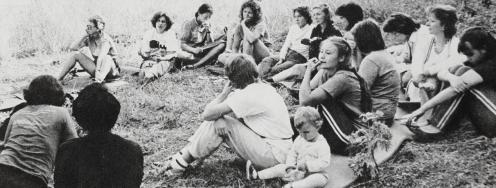Countering Threat Inflation on China’s Arsenal
On the radar: Confidence, not hype, on China’s stockpile numbers; Thawing in Moscow; Vali Nasr on negotiations; B-61 and NATO posture; Push for ratification; and Nuclear programs that weren’t.
On the radar: Confidence, not hype, on China’s stockpile numbers; Thawing in Moscow; Vali Nasr on negotiations; B-61 and NATO posture; Push for ratification; and Nuclear programs that weren’t.
November 14th, 2012 | Edited by Benjamin Loehrke and Marianne Nari Fisher
Red scare - A new commission report to Congress today is expected to hype concerns about the size of China’s nuclear stockpile, citing unsubstantiated claims that China could be hiding hundreds of warheads in underground tunnels. “This might be scary but for the fact that the Pentagon says it's not true -- and that even if it was, it would not directly affect U.S. national security,” writes Tom Collina at Foreign Policy.
--Collina cites military and intelligence estimates clarifying the size of China’s nuclear arsenal - some 240 warheads - and notes that, contrary to the commission report’s claims, “China's nuclear force is no reason to complicate or delay the next round of U.S.-Russia arms reductions.” http://bit.ly/TIFOhn
New tone from Moscow - A sudden post-election warming of Russia’s behavior toward the U.S. shows that “a channel of communication has opened between Moscow and Washington, at least for a while. It suggests, first, that the Russian authorities were deeply relieved that Mitt Romney did not win, and, second, that in Russia, story lines can be changed and harsh language switched off when there are deals to be made,” writes Ellen Barry at The New York Times.
--The main deal in need of making: “Russia is in the position to provide Mr. Obama with something fundamental to his desired legacy: a deep second round of nuclear cuts,” writes Barry.
--”Mr. Putin has asked for a personal meeting with Mr. Obama, and in a telephone conversation on Tuesday, Mr. Obama accepted his invitation to visit Russia, the Kremlin announced.” http://nyti.ms/W4VAYz
Welcome to Early Warning - Subscribe to our morning email or follow us on twitter.
--Have a tip? Email earlywarning@ploughshares.org. Want to support this work? Click here.
Mid-East policy and Iran - “Mr. Obama needs to make a bold move [with Iran], and quickly. While his strategy of harsh sanctions satisfied the American electorate and has likely moved Iran closer to the negotiating table, successful resolution of this conflict, as well as the interrelated regional crises, requires a new vision for Middle East policy,” writes Vali Nasr for The Globe and Mail. http://bit.ly/SGYCMO
NATO’s nukes - The U.S. is about to spend upwards of $10.4 billion to modernize a few hundred nuclear bombs to keep in Europe in order to sustain NATO’s Cold War nuclear role. The program would add new military capabilities to the bomb and integrate the it with 5 different aircraft from 6 air forces. Hans M. Kristensen of the Federation of American Scientists outlines the program and explains why it contradicts key elements of NATO’s Deterrence and Defense Posture Review.
--New paper: ”Modernizing NATO’s Nuclear Forces: Implications for the Alliance’s Defense Posture and Arms Control” (pdf) http://bit.ly/W7b1uu
CTBT in sight - “To date, the Obama administration has not yet launched a systematic and high-level political effort [to ratify] the CTBT. Following the 2012 election, there is no reason for further delay,” writes Daryl Kimball at Arms Control Now with suggestions for how to work toward ratification. http://bit.ly/TYbEJk
Event - Senator Lugar will be speaking at the annual FCNL meeting this Friday, November 16th from 7 to 8pm, to receive a award for his leadership on advancing disarmament and peace issues. Tune in for audiocasting here: http://mixlr.com/fcnl/me/
Iran talks - “Iran appears to be locked in a fierce internal debate over whether to hold bilateral nuclear talks with the United States, with key political leaders calling for dialogue with Washington and hard-liners pressing ahead with expansion of the country’s nuclear facilities,” writes Joby Warrick for The Washington Post.
--Warrick gives an update on the state of play for negotiations with Iran, including expectations for a new IAEA report on Iran due later this week. http://wapo.st/UCIvFU
Kissinger on Iran - Henry Kissinger argues that the U.S. has a limited window for negotiations with Iran next year, but that negotiations must be pursued. The Wall Street Journal CEO Council has the new interview with the former Secretary of State. Video here. http://on.wsj.com/TICrqO
Non-nuclear states - In the 1950s, Sweden had a nuclear weapons program. They opted to shut it down, remaining non-nuclear. However, while bookshelves are filled with histories about the states that got the bomb and the people that built it, few books are focused on those - Sweden, South Africa, Ukraine, Brazil, Argentina, Australia, and others - who gave up nuclear pursuits. Hugh Gusterson asks why at The Bulletin of the Atomic Scientists. http://bit.ly/TDqxyx



